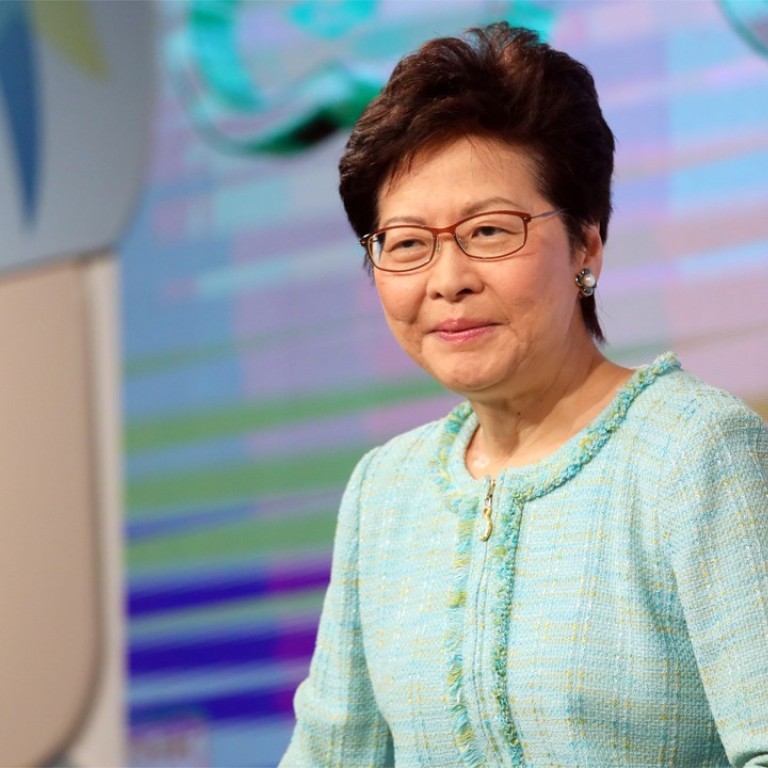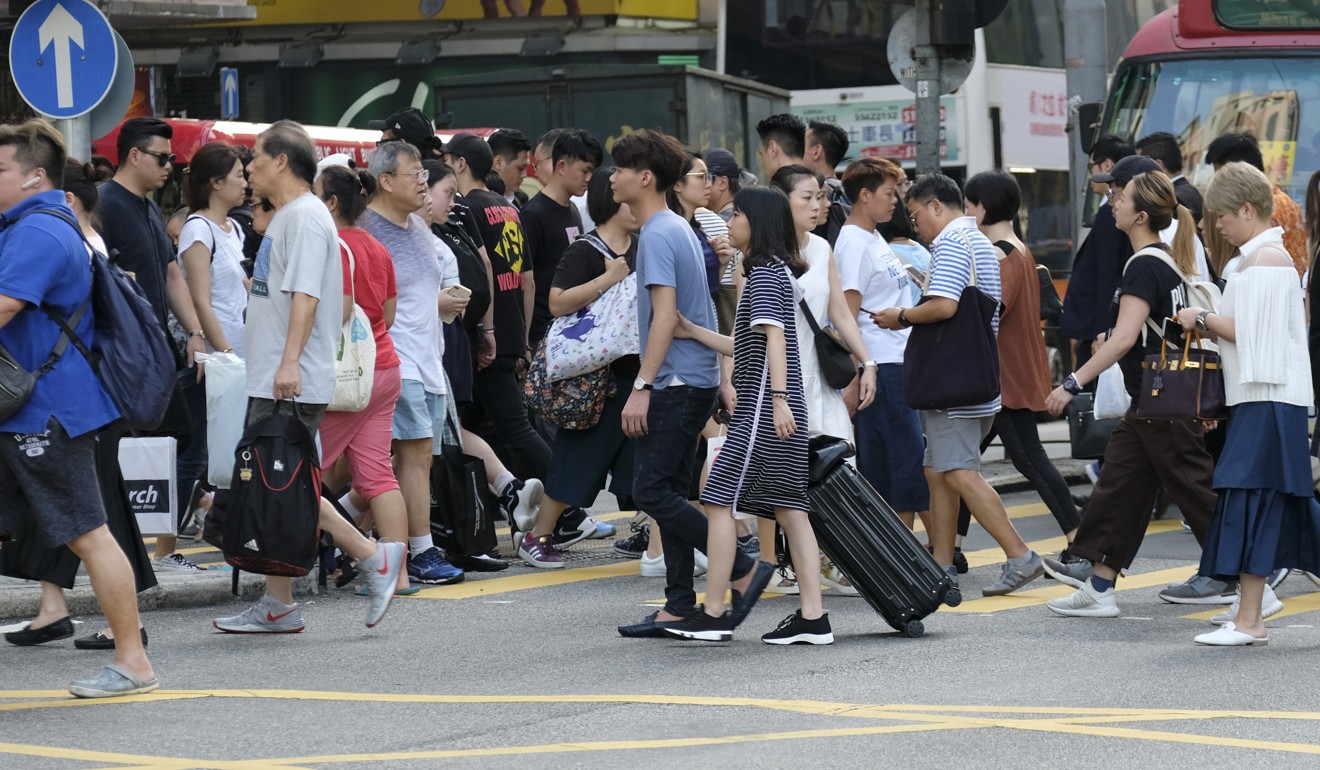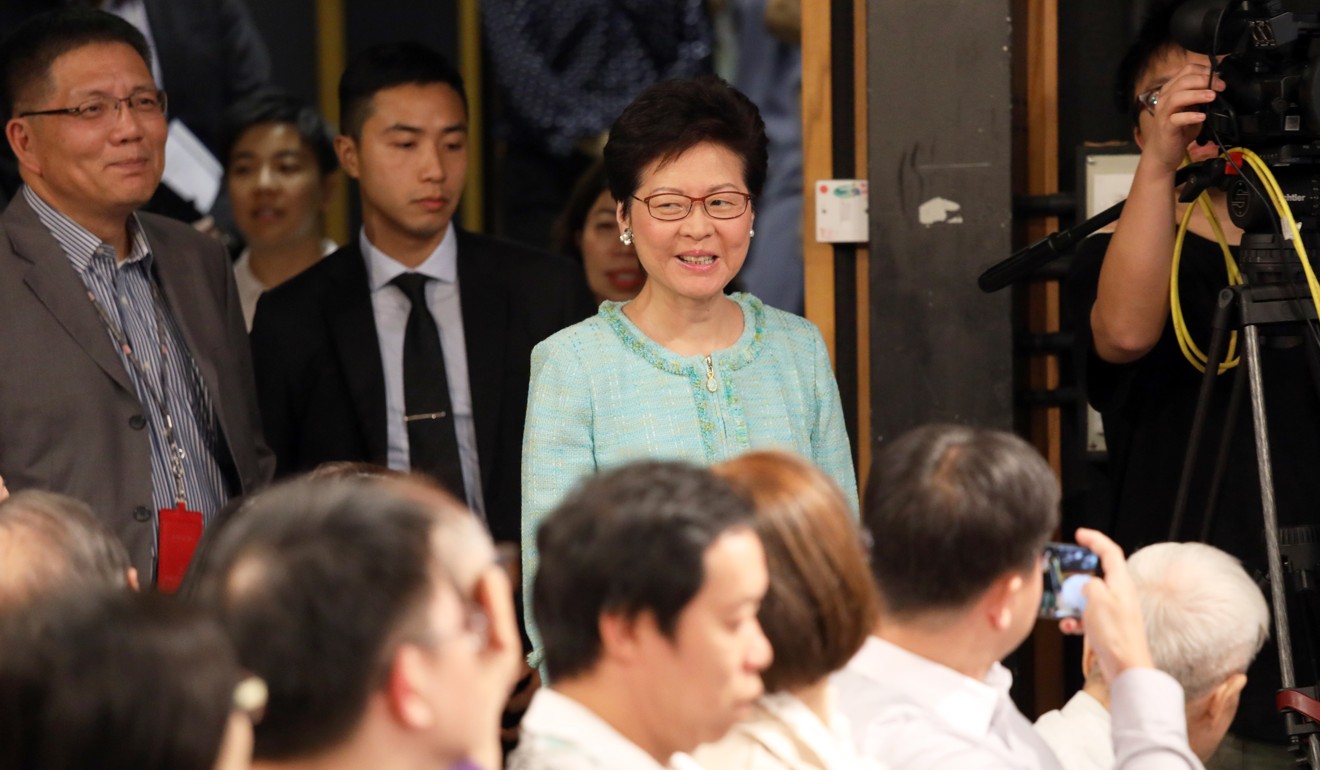
Hong Kong leader Carrie Lam urges public to give migrants from mainland China a chance, saying they have contributed to economic success over the years
Chief executive says Hong Kong is an ‘immigrant society’ and people should not see those arriving from across the border as a ‘burden’
At a public forum organised by RTHK on Sunday, the chief executive said Hong Kong was an “immigrant society” and the public should not see those arriving from mainland China as a “burden”. Her father was a mainland immigrant too, she said.
The one-way permit scheme, in place since 1995 and which allows up to 150 mainlanders each day to move to the city, is meant to help spouses and children born across the border reunite with their families in Hong Kong.

Critics say the scheme allows mainlanders to exploit the city’s resources.
“Let us all think about fairness. If your spouse is not a mainlander, but someone from Europe, the US or other Asian countries, they don’t need to be on the queue to reunite with their family in Hong Kong,” Lam said in response to one of several questions from the audience on the scheme.
“You just need to prove you are, for example, a dependant, or legally married, and you can come to Hong Kong.”
Number of mainlanders moving to Hong Kong drops by almost 15,000
It usually takes one to two years for an applicant to receive the one-way permit, Lam said.
In the 1970s, a Hong Kong woman gave birth to three to four children on average, she said, adding that the fertility rate had now dropped to about 1.2.
The economic growth Hong Kong achieved over the past decades was partly a result of sufficient population, she said.
More than a million people have been admitted under the scheme since 1997, accounting for up to 13 per cent of Hong Kong’s total population.
The permit is issued by mainland authorities and Hong Kong’s Immigration Department has no right to scrutinise holders before admitting them to the city.
Last month, Lam ruled out reducing or scrapping the 150 quota, accusing political activists of “brainwashing” residents into blaming people from across the border for housing shortages and inadequate resources.
Students’ antagonising calls for independence leave Lam fighting fires
Hong Kong has consistently been ranked as one of the most expensive cities in which to live worldwide, while the red hot property market has also made it one of the most unaffordable.
On Sunday, Lam was asked whether the government could take over from mainland authorities to issue the permits. She replied that even if her administration had the power to issue them, the screening criteria would be mostly the same, and the government would look at, for example, how long couples had been married and whether they had children.
At the forum, attended by about 110 members of the public, Lam was also asked about housing and social issues ahead of her policy address next month.
She said the administration would adopt multiple options – not just one – from the 18 put forward in a public consultation to boost land supply. That was because some options were for the longer term and would take time to increase land supply.

In 2005, the Housing Authority privatised its 180 malls, wet markets and car parks through Link Reit. Public estate residents have complained that Link Reit has been kicking small shops out of its malls and replaced them with big chains, leaving residents with fewer choices.
Councillor hits back at Carrie Lam’s defence of one-way permit scheme
What Lam said her administration had done was to address the complaints to Link Reit’s management. The government would also build more facilities, such as wet markets, at public estates.
On the economy, she said the government would not let its guard down on the possible effects of the US-China trade war on Hong Kong. Economic growth in the first half of the year was 4 per cent, which Lam said was “very good” for a mature economy such as Hong Kong.

